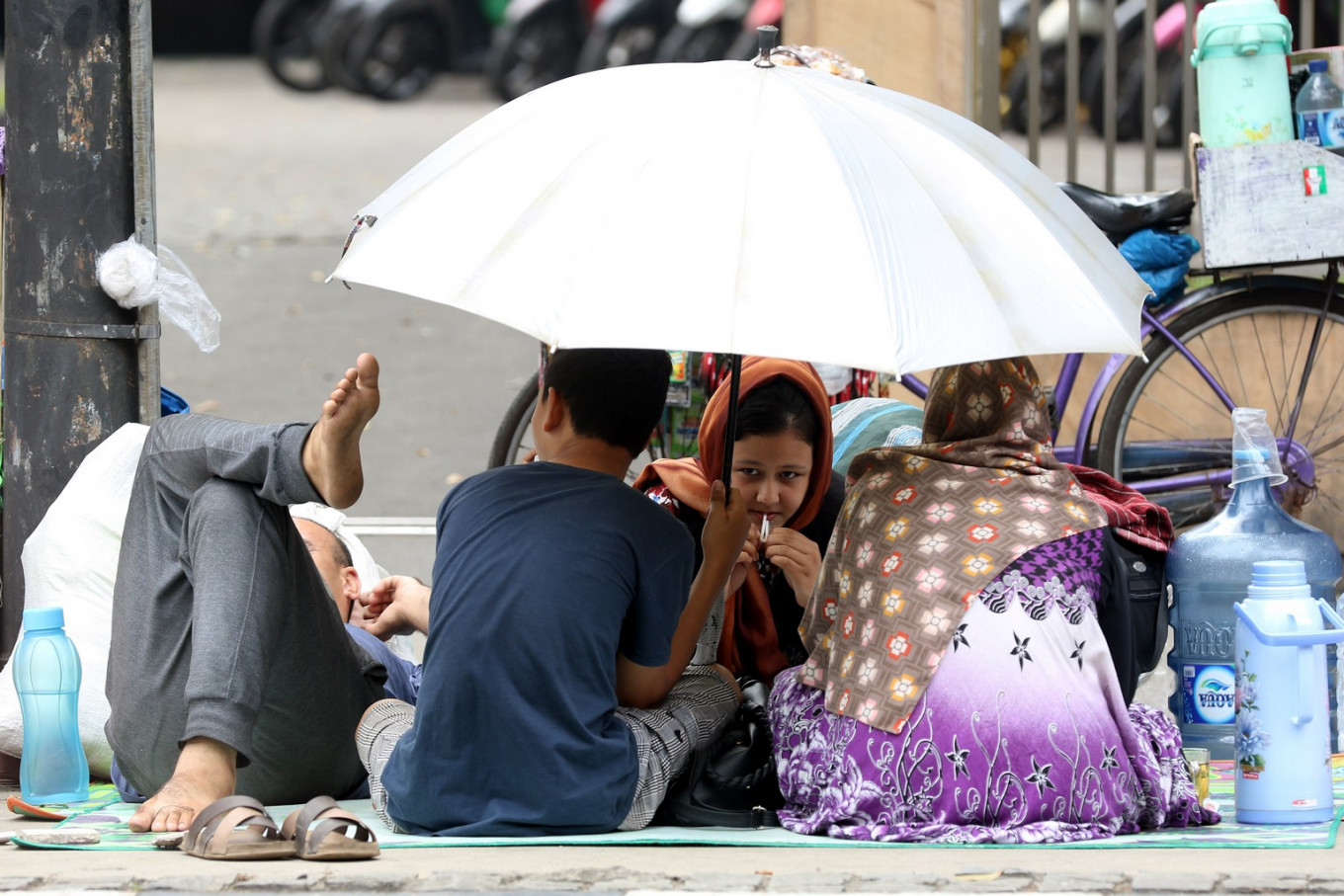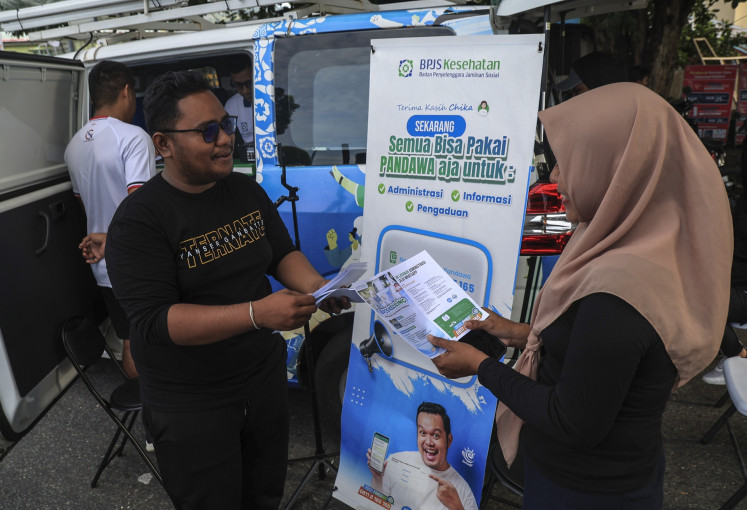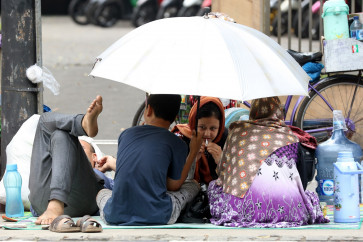Popular Reads
Top Results
Can't find what you're looking for?
View all search resultsPopular Reads
Top Results
Can't find what you're looking for?
View all search resultsGive refugees opportunity to become self-reliant
Allowing refugees in Indonesia to gain access to employment in order for them to become self-reliant can be an alternative solution given the extremely limited opportunities for refugee resettlement to third countries.
Change text size
Gift Premium Articles
to Anyone
T
he recent news of refugees’ protests held outside the office of the United Nations High Commissioner for Refugees (UNHCR) in Jakarta as well as in other cities such as Makassar, South Sulawesi, Tanjung Pinang and Pekanbaru in Riau, inevitably brings back memories when as an immigration officer I used to be present at protests where refugees explained their frustrations.
And what they were protesting about was still the same: resettlement in a third country. The protesters who were mostly individual refugees from countries including Afghanistan, Sudan and Somalia concluded that the UNHCR in Indonesia only chooses refugee families for its resettlement program, so the single refugees feel neglected and forgotten.
Although the refugees protested bitterly to the UNHCR — which in Indonesia provides protection and assistance to refugees and asylum seekers — as Indonesia is not a signatory to the Refugee Convention, I wondered whether the central government would develop new policy initiatives in overcoming the main obstacles that the refugees have encountered while living in limbo. Unfortunately, the government is still not really concerned about the 14,000 refugees and asylum seekers currently in the country.
Due to high demand globally, resettlement opportunities are seriously limited. The UNHCR reported that among 16.1 million refugees worldwide in 2015, 82,000 were resettled with the agency’s assistance. This year there are 20 million refugees and 32,000 people have been resettled.
The implication of this dreadful reality is that refugees transiting in Indonesia will continue to languish in protracted situations, currently estimated to be, globally, 26 years.
Resettlement is the solution preferred among refugees in Indonesia. The other two solutions for refugees proposed by the UNHCR do not seem feasible. The prospect of local integration remains low because of limited resources in countries that host refugees. Voluntary repatriation is not a viable option since ongoing conflict and disorder in many countries of origin often effectively prevent refugees from returning home. In the face of these daunting challenges, we need a more innovative approach that can be adopted more effectively to address this policy problem.
One strategy that the government can explore is to allow refugees to engage in income-generating activities, as others have suggested. After all, the government needs to worry about the costs of using public money to deal with refugees. While Australia has been generous in funding basic needs such as accommodation, food and medical care of the refugees in Indonesia since 2002, channeled through the International Organization for Migration, it has shifted its policy in Indonesia, reducing its annual appropriation in March 2018. Since that time, consequently, over 5,000 asylum seekers and refugees and any newcomers live without any support in Indonesia. Although refugees often survive by relying on savings, remittances or humanitarian assistance from NGOs, these resources will not last very long.


















